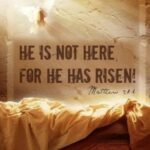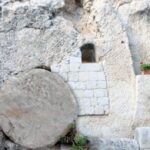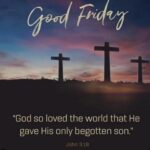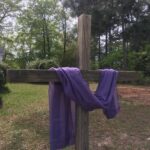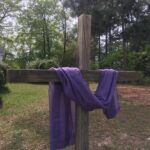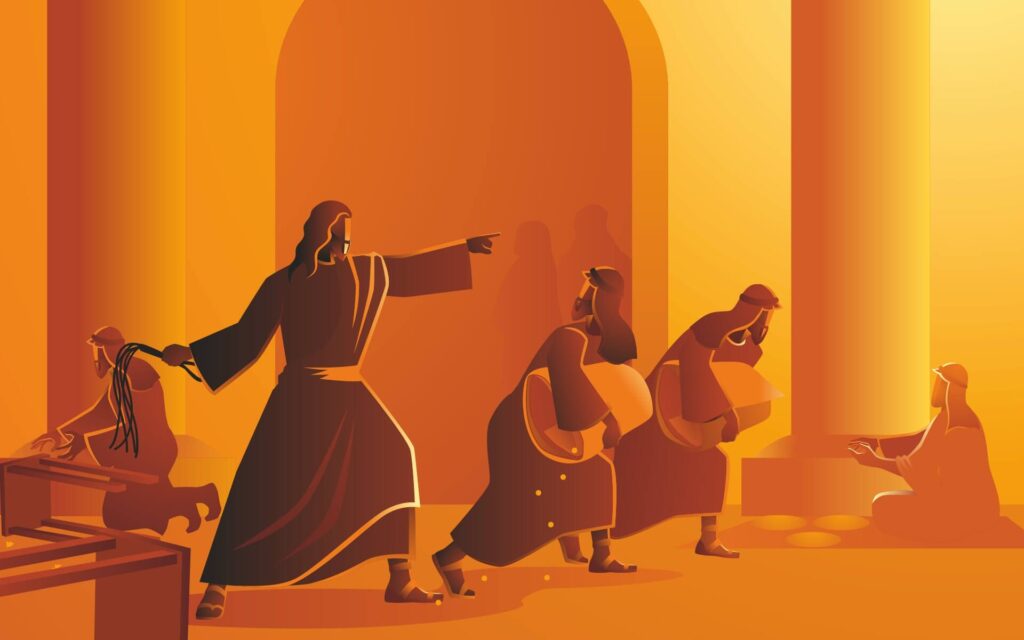“Teth” (ט) is the ninth letter of the Hebrew alphabet and serves as the heading for the ninth section of Psalm 119 (verses 65-72). In this section, each verse begins with “Teth” in the original Hebrew, maintaining the acrostic pattern that characterizes the entire psalm.
The symbolic meaning of “Teth” can be explored on several levels:
Literal Meaning and Symbolism: “Teth” is often associated with the word “tov,” which means “good” in Hebrew. This connection can symbolize the goodness inherent in God’s creation and commandments, as well as the goodness that results from following God’s laws. In the context of Psalm 119, “Teth” could represent the goodness of God and His teachings, as acknowledged by the psalmist in recognizing the benefit of divine instruction and correction.
Symbol of Contemplation and Self-Examination: “Teth” resembles a container that is closed on all sides except for a small opening, which can symbolize introspection and the idea of looking inward. This section of Psalm 119 reflects the psalmist’s contemplation on his experiences, especially the learning and growth that have come from affliction, indicating a process of self-examination leading to a deeper understanding of God’s statutes.
Cycle of Growth and Renewal: The shape of “Teth,” resembling a circle with a crown, can symbolize the cyclical nature of spiritual growth and renewal. The psalmist’s reflections on affliction and learning from God’s decrees can be seen as part of a continual process of being shaped and refined by God’s word, leading to spiritual maturity.
Protection and Enclosure: Given that “Teth” visually suggests something encircled or enclosed, it can also symbolize the protective aspect of God’s commandments. Just as a container protects its contents, God’s laws safeguard the believer, guiding them towards what is good and keeping them from harm.
In summary, “Teth” in Psalm 119 symbolizes the inherent goodness of God’s commandments, the importance of introspection and learning from one’s experiences, and the protective and refining role of divine statutes in a believer’s life. Through adherence to God’s laws, the psalmist experiences growth, renewal, and the security of living under God’s guidance.
Psalm 119:65-72: Verse by Verse Analysis
Verse 65:
Text: “You have done good to your servant, O Lord, according to your word.”
Reflection: Acknowledging God’s goodness, the psalmist reflects on how God has blessed him in accordance with divine promises, emphasizing trust in God’s faithful adherence to His word.
Cross-reference: Psalm 34:8 – “Taste and see that the Lord is good; blessed is the one who takes refuge in him.”
Verse 66:
Text: “Teach me good judgment and knowledge, for I believe in your commandments.”
Reflection: The psalmist asks for wisdom and understanding, valuing these as essential for living in alignment with God’s commandments, indicating a desire for discernment grounded in faith.
Cross-reference: James 1:5 – “If any of you lacks wisdom, you should ask God, who gives generously to all without finding fault, and it will be given to you.”
Verse 67:
Text: “Before I was afflicted I went astray, but now I obey your word.”
Reflection: Reflecting on past hardships, the psalmist recognizes that affliction led him back to obedience to God’s word, suggesting that trials can guide one towards righteousness.
Cross-reference: Hebrews 12:11 – “No discipline seems pleasant at the time, but painful. Later on, however, it produces a harvest of righteousness and peace for those who have been trained by it.”
Verse 68:
Text: “You are good, and what you do is good; teach me your decrees.”
Reflection: The psalmist affirms God’s inherent goodness and the goodness of His actions, asking to learn more deeply from God’s decrees, underlining a trust in God’s nature and teachings.
Cross-reference: Psalm 100:5 – “For the Lord is good and his love endures forever; his faithfulness continues through all generations.”
Verse 69:
Text: “Though the arrogant have smeared me with lies, I keep your precepts with all my heart.”
Reflection: Despite facing deception and slander from the proud, the psalmist remains committed to following God’s precepts wholeheartedly, illustrating resilience in faith.
Cross-reference: 1 Peter 3:16 – “Keeping a clear conscience, so that those who speak maliciously against your good behavior in Christ may be ashamed of their slander.”
Verse 70:
Text: “Their hearts are callous and unfeeling, but I delight in your law.”
Reflection: Contrasting the callousness of the wicked with his joy in God’s law, the psalmist underscores the joy and spiritual sensitivity derived from embracing God’s word.
Cross-reference: Ezekiel 36:26 – “I will give you a new heart and put a new spirit in you; I will remove from you your heart of stone and give you a heart of flesh.”
Verse 71:
Text: “It was good for me to be afflicted so that I might learn your decrees.”
Reflection: The psalmist sees value in his afflictions as they have led him to a deeper understanding and commitment to God’s decrees, highlighting how trials can foster spiritual growth.
Cross-reference: Romans 5:3-4 – “Not only so, but we also glory in our sufferings, because we know that suffering produces perseverance; perseverance, character; and character, hope.”
Verse 72:
Text: “The law from your mouth is more precious to me than thousands of pieces of silver and gold.”
Reflection: Valuing God’s law above material wealth, the psalmist expresses the incomparable worth of divine teachings, indicating a profound appreciation for spiritual over material riches.
Cross-reference: Proverbs 3:13-15 – “Blessed are those who find wisdom, those who gain understanding, for she is more profitable than silver and yields better returns than gold.”
Key Takeaways from Psalm 119:65-72:
Recognition of God’s Goodness: The psalmist acknowledges God’s goodness not only in His nature but also in His actions, emphasizing trust and reliance on God’s promises. This acknowledgment is a testament to the belief in the inherent goodness of God’s commandments and His faithful adherence to His word.
The Beneficial Nature of Affliction: Through personal reflection, the psalmist identifies past hardships as pivotal moments that redirected him towards obedience to God’s word. This perspective reveals an understanding that trials, while challenging, can serve a divine purpose in guiding individuals back to righteousness and deepening their commitment to God’s decrees.
Resilience Against Opposition: Despite encountering lies and callousness from others, the psalmist’s commitment to God’s precepts remains unwavering. This resilience highlights the strength found in a heart dedicated to God’s law, suggesting that spiritual integrity can endure in the face of external malice and deceit.
Valuing Divine Wisdom Over Material Wealth: Expressing that God’s law is more precious than significant material wealth, the psalmist illustrates the incomparable value of divine wisdom and guidance. This preference underscores a profound appreciation for spiritual riches over worldly possessions, recognizing the lasting fulfillment that comes from living according to God’s word.
Joy and Delight in God’s Law: The psalmist not only obeys God’s commandments out of duty but finds joy and delight in them. This emotional connection to God’s law reflects a deep love for God’s word and an understanding of its positive impact on the believer’s life.
Together, these key takeaways from Psalm 119:65-72 highlight the transformative power of God’s word in the life of a believer, showcasing how trust in God’s goodness, resilience in the face of adversity, and the valuation of spiritual truths over material gains contribute to a fulfilling and righteous life.
Help Encourage others by sharing:
